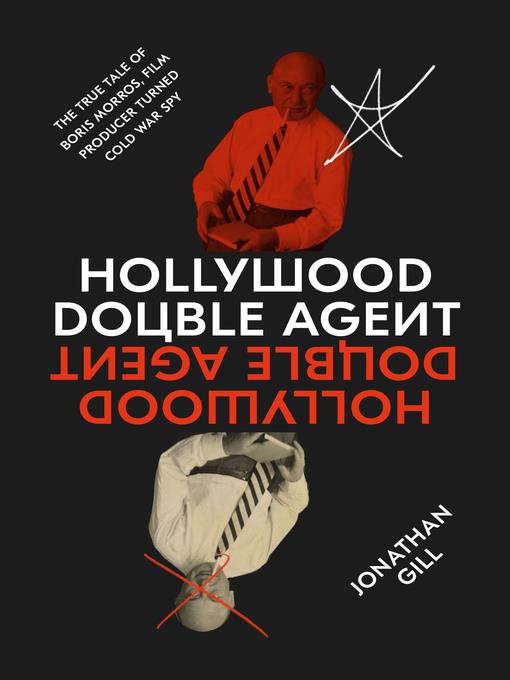
Hollywood Double Agent
The True Tale of Boris Morros, Film Producer Turned Cold War Spy
کتاب های مرتبط
- اطلاعات
- نقد و بررسی
- دیدگاه کاربران
نقد و بررسی

March 1, 2020
With this fascinating and detailed narrative, Gill (American history & culture, Univ. of Amsterdam) proves the adage that truth is stranger than fiction. Born in pre-Soviet Belarus, Boris Morros served as musical director for Tsar Nicholas II's court before fleeing to Istanbul and then New York following the Russian Revolution. Morros's musical background provided the basis of his new career in America, where he began as a theater organist and gradually added teacher, composer, performer, and conductor to his r�sum�. Morros's flair for self-promotion and his intentional ambiguity about his past stoked a legendary reputation, which he used to work his way up in the American entertainment industry. His parents and siblings, however, remained in the Soviet Union, and using their freedom against him, Soviet agents soon begin soliciting Morros to act as a spy for them in the United States. For years, Morros spied for the KGB--albeit inconsistently--and agreed to serve as a double agent for the FBI. VERDICT Gill's captivating, fast-paced narrative reads like a thriller and will leave readers wanting more. Highly recommended for those who love stories of espionage.--Philip Shackelford, South Arkansas Community Coll., El Dorado
Copyright 2020 Library Journal, LLC Used with permission.

February 1, 2020
A Hollywood mover and shaker takes center stage in a brisk tale of spies and counterspies. Russian-born Boris Morros (1891-1963) arrived in the U.S. in 1922, determined to hone his musical background into a career in his adopted home. By the 1930s, despite the exigencies of the Great Depression, he rose to become the musical director of Paramount Studios, socializing with movie moguls--most of whom, like him, were Jewish �migr�s--and Hollywood royalty. Gill (American History and Culture; Univ. of Amsterdam; Harlem: The Four Hundred Year History From Dutch Village to Capital of Black America, 2011) creates a well-rounded portrait of a man who was an unlikely spy and, later, an FBI counterspy. Morros, writes the author, "was ideologically uncommitted, constitutionally discreet, addicted to fame and money, and oblivious to the distinction between truth and fiction," traits that enabled him to survive purges, betrayals, and precarious Soviet politics. In midcentury, Gill discovered, the U.S. was "thoroughly penetrated by foreign spies." Although America had a handful of agents in the Soviet Union, Soviet spies "infiltrated virtually every federal agency," including the White House; in addition, the U.S. Embassy in Moscow "contained 120 hidden Soviet microphones." Morros was tasked with providing cover jobs for Soviet agents, in Hollywood or with business associates elsewhere. Although he later portrayed himself as a frightened victim, in fact he bargained with his handlers to seek protection for family members still in the Soviet Union. Finally, when he realized that many relatives had been killed by the secret police, Morros resolved to get revenge. In July 1947, he called the FBI. During a week of questioning, he revealed his life story to the agency that had been on his trail since the mid-1930s. Hoping to avoid execution as a traitor, Morros found, to his relief, that the agency instead invited him to switch sides. "When do I start?" he answered. In a narrative that reads like an espionage thriller, Gill follows his subject's peripatetic travels and interactions with malevolent, powerful--and sometimes bumbling--characters. A lively biography of an opportunist, traitor, and patriot.
COPYRIGHT(2020) Kirkus Reviews, ALL RIGHTS RESERVED.

























دیدگاه کاربران